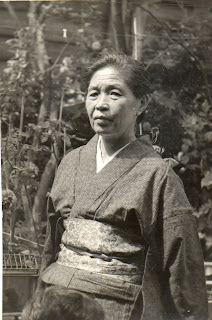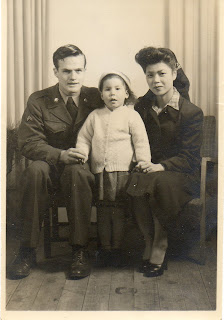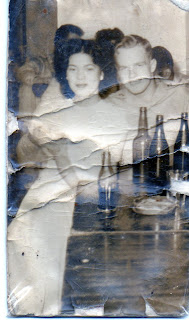I have applied to the Japan Exchange and Teaching Program, and I am waiting impatiently for the interview candidates to be released (by early Feburary...I check every day). I was so prepared to apply that I sent my application in the day it was released. I haven't wanted a goal so fervently since I dreamt one day of going to college.
It is really scary - wanting and hoping for something - because, when hope isn't occupying my heart, a deep and feroucious self-doubt sprints right in. Hope and doubt are two sides of the same coin.
When we play games together, Tom has told me to, "play as if you are going to win." Don't make concessions or back-up plans. Don't play defensively. Go for the win. And while that might be an effective gaming strategy, in life the odds are usually stacked against you, especially in the job market. I'm trying to play as if I am going to win.
I missed the chance to study abroad in Australia during college for two reasons. 1) I probably couldn't have afforded it. 2) I was wait-listed, and I planned for defeat. I found a summer job. I signed a lease. I ended up getting into the program at the last minute, but I had set myself up for failure, and I declined.
So this time, I am planning for success. I have a "hope chest" for Japan (okay, it's a cardboard box). I am doing so much research, learning Japanese, networking, planning. This time, I am creating a series of events that will lead me to achieving my goal.
I have been doing some quick internet research about JET acceptance rates. While no exact figures have been released, here is an approximation:
Q. What percentage of ALT applicants ends up participating in the JET Program?
The ALT applicant success rate varies from year to year. For the last few years the acceptance rate hovered near 15%, although it was previously closer to 30%.
15% isn't much.
(British) forums say:
- "Its not as bad as it seems. Bare in mind a lot of people will be very half arsed with their forms and miss a lot out. Then a lot of complete socially inept morons will apply. Lots of people will have no experience of anything except having seen every episode of dragonballz.The actual odds in terms of proper, good candidates for the job will be more like 1 in 2.
- Some seeming "high quality" candidates might get rejected because the selectors assume they don't really know what JET is about. They want people to be assistant teachers, and also people with an interest in learning about Japan. Somebody who is/is almost a 'proper' teacher or who has already studied Japanese culture and history at a high level will probably just get bored of it and go home early.On the other hand a flabby otaku will spend the whole time collecting anime, stinking and whining that Japan isn't what they expected (IE wierdly enough the whole country isn't one big Akihabara).So they probably want somebody in the middle.
Strengths of my application are my TEFL certification, experience in schools, interest in Japan, promptness of my application (they are processed first-come-first-served), and I went to a good college.
Weaknesses are my lack of international travel, and probably a weakness in my essay in regards to teaching about my own culture, which is a big part of the JET program. My transcript is decent, but not a shining star.
Here the qualifications JET recommends: http://www.us.emb-japan.go.jp/JET/jobs_alt.html
I am so nervous. Rejection will be like doubt sneaks in, eats a bite of the hope that resides in my heart, and then poops it out and leaves a little waste there so each time I try to hope, it will smell poop in the air and dissappate. Hmm, that was a weird metaphor.
If you have ever hoped for something as strongtly as I am hoping, you will be familiar with this...sort of paradox...hope and doubt. Wanting something is setting yourself up for success and failure, and whichever comes, comes. Be prepared to either see epic rejoicing if I get an interview, or some kind of unpredictable reaction to failure (probably shock, then disappointment, then utter determination to get in next year because I'm a stubborn idiot.)
Let's end on a hopeful note:
"With the realization of ones own potential and self-confidence in ones ability, one can build a better world. According to my own experience, self-confidence is very important. That sort of confidence is not a blind one; it is an awareness of ones own potential. On that basis, human beings can transform themselves by increasing the good qualities and reducing the negative qualities." ~dalai lama
"Self-confidence is knowing that we have the capacity to do something good and firmly decide not to give up." ~also dalai lama































